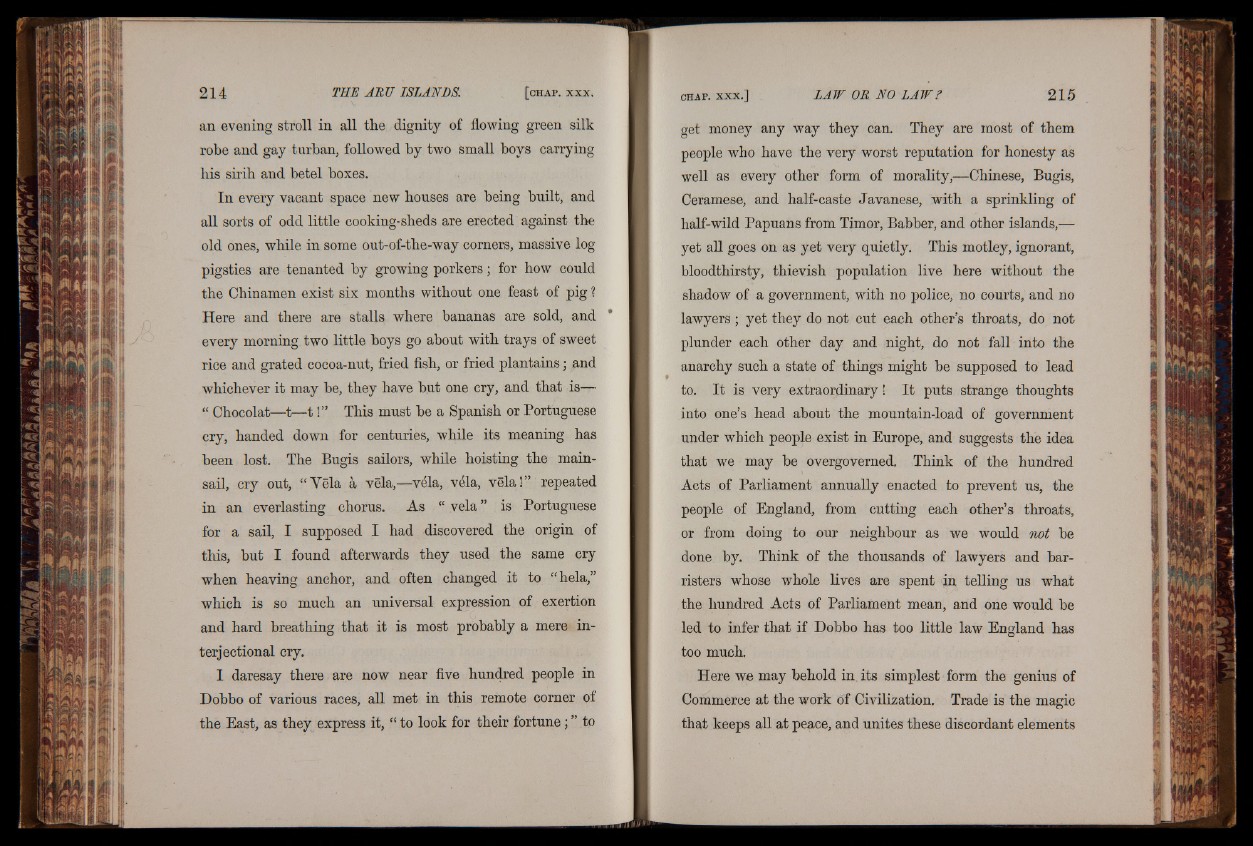
an evening stroll in all the dignity of flowing green silk
robe and gay turban, followed by two small boys carrying
his sirih and betel boxes.
In every vacant space new houses are being built, and
all sorts of odd little cooking-sheds are erected against the
old ones, while in some out-of-the-way corners, massive log
pigsties are tenanted by growing porkers; for how could
the Chinamen exist six months without one feast of pig \
Here and there are stalls where bananas are sold, and
every morning two little boys go about with trays of sweet
rice and grated cocoa-nut, fried fish, or fried plantains; and
whichever it may be, they have b.ut one cry, and that is—
“ Chocolat—t—t !” This must be a Spanish or Portuguese
cry, handed down for centuries, while its meaning has
been lost. The Bugis sailors, while hoisting the mainsail,
cry out, “Vela a vela,—vdla, vdla, vela!” repeated
in an everlasting chorus. As “ vela ” is Portuguese
for a sail, I supposed I had discovered the origin of
this, but I found afterwards they used the same cry
when heaving anchor, and often changed it to “hela,”
which is so much an universal expression of exertion
and hard breathing that it is most probably a mere in-
terjectional cry.
I daresay there are now near five hundred people in
Dobbo of various races, all met in this remote corner of
the East, as they express it, “ to look for their fortune; ” to
get money any way they can. They are most of them
people who have the very worst reputation for honesty as
well as every other form of morality,—Chinese, Bugis,
Ceramese, and half-caste Javanese, with a sprinkling of
half-wild Papuans from Timor, Babber, and other islands,—
yet all goes on as yet very quietly. This motley, ignorant,
bloodthirsty, thievish population live here without the
shadow of a government, with no police, no courts, and no
lawyers; yet they do not cut each other’s throats, do not
plunder each other day and night, do not fall into the
anarchy such a state of things might be supposed to lead
to. It is very extraordinary! It puts strange thoughts
into one’s head about the mountain-load of government
under wbich people exist in Europe, and suggests the idea
that we may be overgoverned. Think of the hundred
Acts of Parliament annually enacted to prevent us, the
people of England, from cutting each other’s throats,
or from doing to our neighbour as we would not be
done by. Think of the thousands of lawyers and barristers
whose whole lives are spent in telling us what
the hundred Acts of Parliament mean, and one would be
led to infer that if Dobbo has too little law England has
too much.
Here we may behold in its simplest form the genius of
Commerce at the work of Civilization. Trade is the magic
that keeps all at peace, and unites these discordant elements